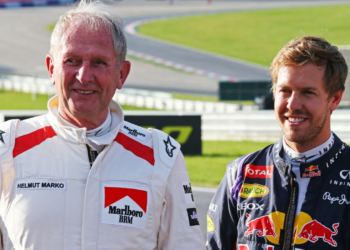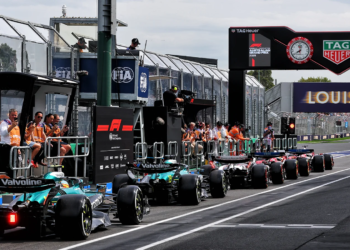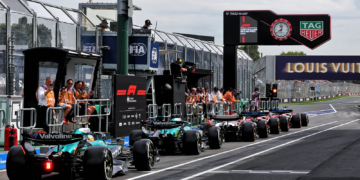According to reports, Alpine is on the verge of signing a customer engine agreement with Mercedes, bringing an end to the Renault Group’s Formula 1 power unit operations in Viry-Chatillon, France.
Formerly a powerhouse in Formula 1 engine manufacturing and the go-to supplier if you wanted to challenge for the title in the 1990s, Renault continued to achieve championship success with its works team in the early 2000s and latterly Red Bull, securing a quadruple-double of Drivers’ and Constructors’ crowns from 2010 through to 2013.
However, since the dawn of Formula 1’s 1.6L V6 hybrid era in 2014, Renault’s power units have been the worst of the bunch.
That trend continues to the present day, with the tireless workforce at Viry-Chatillon toiling to create the best it can under financial constraints as the Renault Group invests significantly less in its power unit operation compared to its rivals.
Amid the Alpine Formula 1 team’s tumultuous present and poor form, F1 journalist Joe Saward and, later, Autosport have revealed that talks are ramping up for the team to ditch its Renault E-Tech power unit in favour of becoming a Mercedes customer
Rumours that Renault Group CEO Luca de Meo and Alpine Team Principal Bruno Famin have been seeking a deal with Mercedes (a team that currently supplies its own works outfit along with McLaren, Aston Martin and Williams) have been gestating for some time and Mercedes Team Principal Toto Wolff admitted discussions had been held when probed on the matter at the British Grand Prix.

“I think Alpine would take a decision, do they want to continue with their Formula 1 engine programme or not? And only when they have taken that strategic decision, we would dive into our agreements. But we’re open-minded, and that’s what we have told them.”
Since Flavio Briatore re-entered the Enstone-Viry fold at the Spanish GP as an Executive Advisor to the Alpine operation, reports indicate that the team ahs ramped up its efforts to secure a customer engine deal and Mercedes is the ideal suitor.
Talks are said to be at an advanced stage and if a deal can be agreed upon in a timely fashion, Alpine Formula 1 cars could be powered by Mercedes as early as next year, ahead of the new power unit regulations in 2026.
Not only that, but the agreement would be a technical partnership akin to the one Aston Martin holds with Mercedes (and will relinquish when it begins its works partnership with Honda in 2026), meaning Alpine will receive the power unit, gearbox and rear suspension from the Brackley-based squad.
McLaren has proved this term that being a customer team can lead to Grand Prix wins and in 2023, Aston Martin went on an impressive podium run with its rear-end mimicry of Mercedes.
Alpine is a team that has struggled for form in 2024 and will be hoping to achieve a similar boost should it partner with the Silver Arrows.
Not only that, but Saward reports that a Mercedes engine deal is a carrot being dangled in the direction of Carlos Sainz.
Sainz, who had been on the verge of signing with Williams in Spain has had his options opened following an approach from Alpine and it is believed that Briatore is using the prospect of Mercedes power to encourage the Spaniard to return to the team he last raced with during its Renault days in the 2018 season.
However, there are complications with Alpine signing with Mercedes.
Firstly, a large proportion of the workforce at Viry-Chatillon will find themselves without a job, with Alpine’s FIA WEC programme not enough to sustain the personnel displaced from a Formula 1 power unit project.
Second is time, if a deal is struck for Mercedes to supply Alpine with a power unit as early as next season, the window is tightening by the day to prepare appropriately in order to be competitive in 2025.
Not only this, but Williams Team Principal has said that work is already well underway between Mercedes High Performance Powertrains (HPP) and its customer teams regarding the 2026 engine.
“From our perspective, we have been working alongside HPP in order to get the concept right for ‘26 already for many, many months,” he said. “And so whatever you do, you’re going to be six to 12 months behind the three other teams. That’s quite penalising in the grand scheme of things.”
Alpine has approached a crossroads then, one that will make a dramatic impact on the sport, not only regarding its own competitive standing, but its financial structure, the make-up of its workforce and the wider 2025 Formula 1 driver market.









